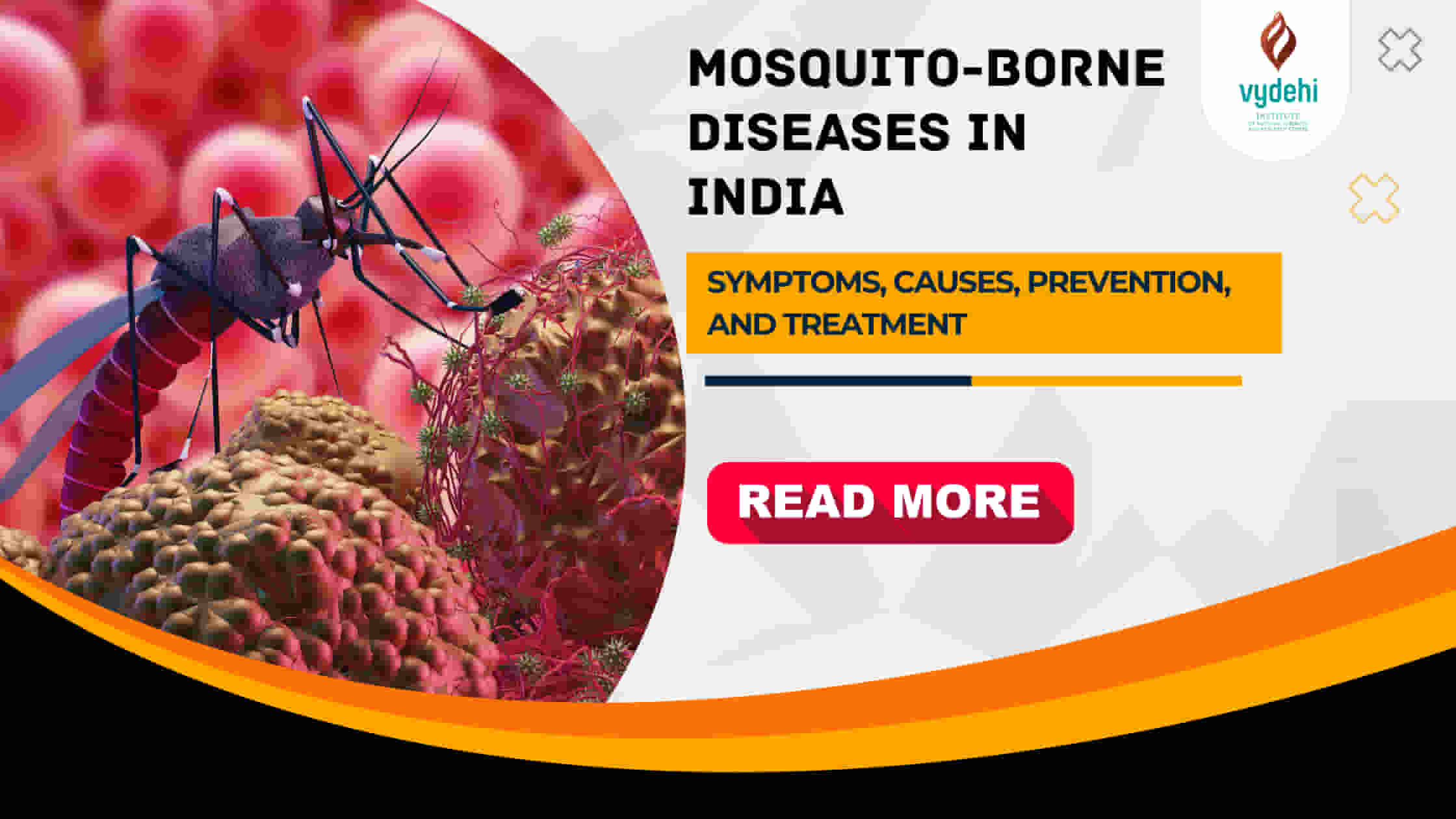

Mosquitoes, often considered tiny and inconspicuous(hidden), are responsible for transmitting some of the deadliest diseases known to mankind. In India, where tropical climates provide an ideal breeding ground, the threat of mosquito-borne diseases looms large. This blog explores the various aspects of mosquito-borne diseases in India, including their symptoms, causes, prevention, and treatment, shedding light on the critical role played by the Vydehi Institute of Medical Sciences and Research Center in combating them.
Understanding the role of various mosquito species in disease transmission is vital:
Mosquito-borne diseases bring with them a range of symptoms that can have significant health implications:
Vector-borne diseases, primarily transmitted through mosquito bites, have significant health impacts:
Proactive measures can significantly reduce the risk of contracting mosquito-borne diseases. The first line of defense involves:
Understanding treatment options is vital for managing mosquito-borne diseases:
Read Related Blog: Traditional South Indian Medicine be the Answer to Dengue and Chikungunya Treatment
Vydehi Institute of Medical Sciences and Research Center stands as a light of hope in the fight against mosquito-borne diseases in India. Our dedicated teams work tirelessly to raise awareness, provide accurate diagnoses, and offer effective treatments. With cutting-edge research and state-of-the-art facilities, we’re at the forefront of fighting these diseases and improving public health.
The threat posed by mosquito-borne diseases is a persistent one, especially in countries like India. Understanding their symptoms, causes, and effective prevention strategies is essential for safeguarding public health. Vydehi Institute of Medical Sciences and Research Center stands resolved offering expert guidance, diagnosis, and treatment to combat these diseases and create a healthier, safer community.
The information included here is only for knowledge-sharing purposes, and the blog is not intended to be a substitute for diagnosis, medical advice, or treatment by a healthcare professional. Every individual needs advice based on diagnosis and evidence, hence the reader should consult their doctor to determine the disease and any treatment must be taken under appropriate medical guidance.

 Emergency Number
Emergency Number
The public’s health in India is seriously threatened by mosquito-borne illnesses, which are a common health concern. The bite of an infected mosquito is how these illnesses, such as malaria, dengue, and chikungunya, are spread. Symptoms might range from fever and joint pain to serious complications, depending on the condition. These diseases can have a less severe effect on India’s population if the causes are recognized, preventative measures such employing mosquito nets and repellents are used, and prompt treatment is sought. Insightful information is provided for a healthier, mosquito-resistant India in this blog’s exploration of the key elements of diseases spread by mosquitoes.
Great article explaining the mosquito borne viruses.